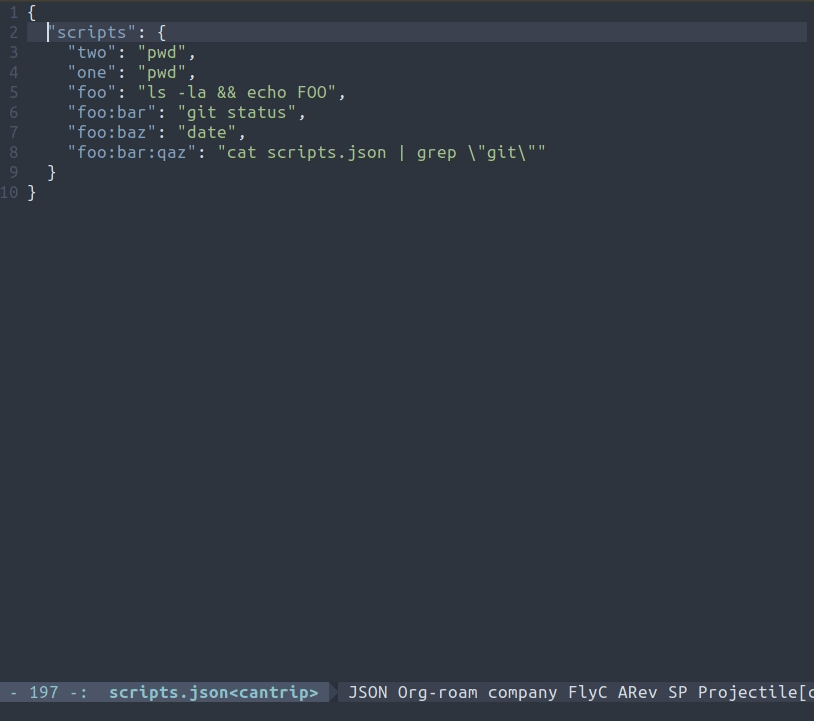Clone this repository:
git clone https://github.com/johncoder/cantripThen, add this to your emacs configuration:
(load-file "~/path/to/cantrip/cantrip.el")By default, it binds to C-x a r, and looks for package.json or scripts.json in the dominating directory that contains a .git folder.
A scripts file looks something like this:
{
"scripts": {
"two": "pwd",
"foo": "ls -la",
"foo:bar": "git status",
"foo:baz": "date",
"foo:bar:qaz": "cat scripts.json | grep \"git\""
}
}Cantrip uses a : delimited convention for chaining transient prefixes. It will automatically select an alias for segments using the unique letters of the label, or overflow to another option when necessary. When you execute one of the scripts, it uses compile to run the respective script as a compilation command within the git repository.
Cantrip now keeps a list of the most recent commands you've run in the current git repository. C-u C-x a r or M-x cantrip-rerun will prompt you to choose from the recent commands.
You can use cantrip-define-prefix to build a prefix manually so that you can make one globally available. Example:
(global-set-key (kbd "C-x a g")
(cantrip-define-prefix "~/.cantrip.json"
"my-cantrip"))You can change how cantrip dispatches commands! For example, you can change it to send commands directly to your open *ansi-term* buffer.
(setq cantrip-dispatch-command
#'(lambda (command)
(switch-to-buffer-other-window "*ansi-term*")
(comint-send-string "*ansi-term*" (concat command "\n"))))You can alter a command before it is dispatched. For example, if you'd like to run the command using npm or yarn:
(setq cantrip-transform-command
#'(lambda (key command args)
(if (eq default-directory (locate-dominating-file default-directory "yarn.lock"))
(format "yarn run %s %s" key args)
(concat command " " args))))